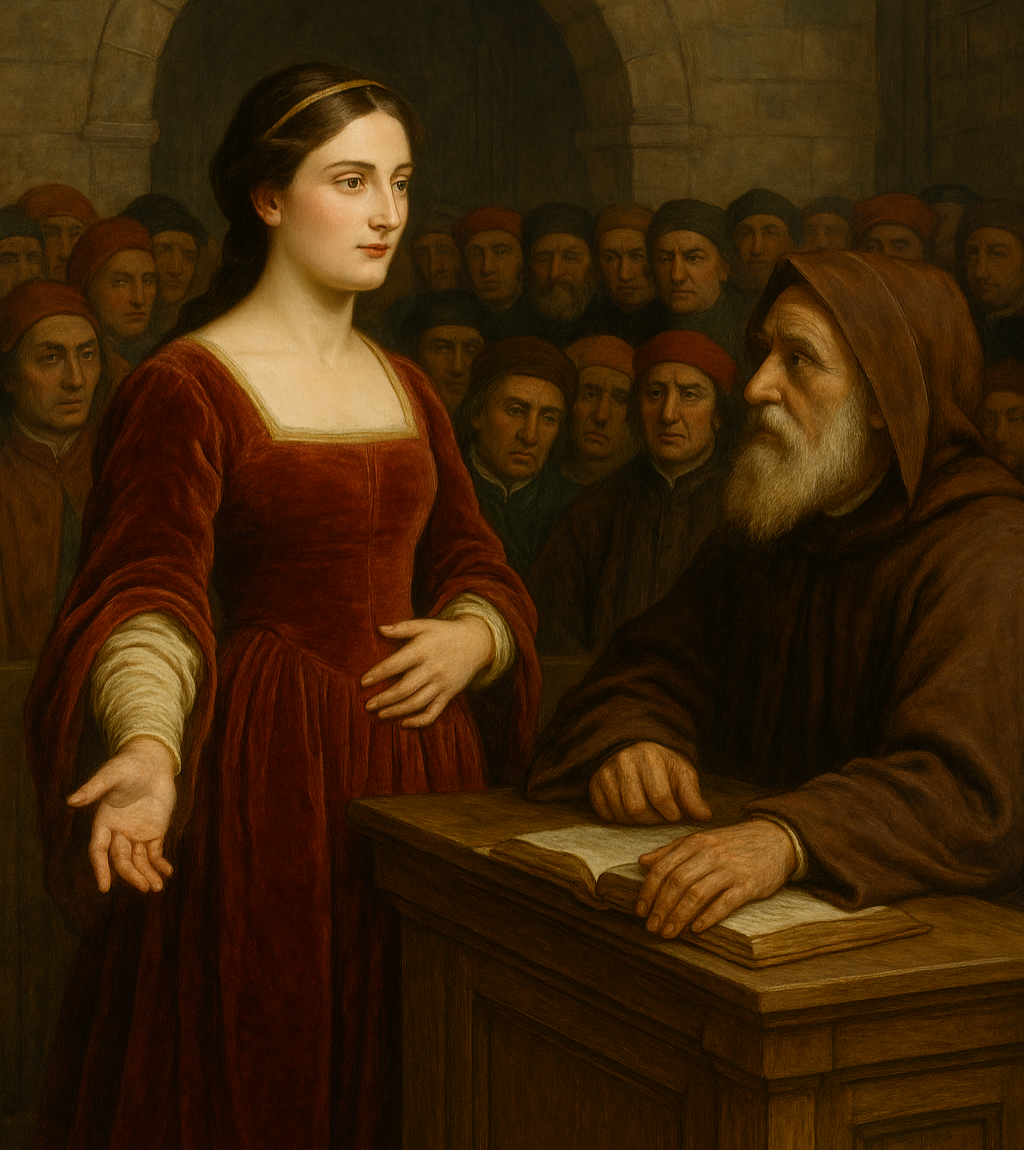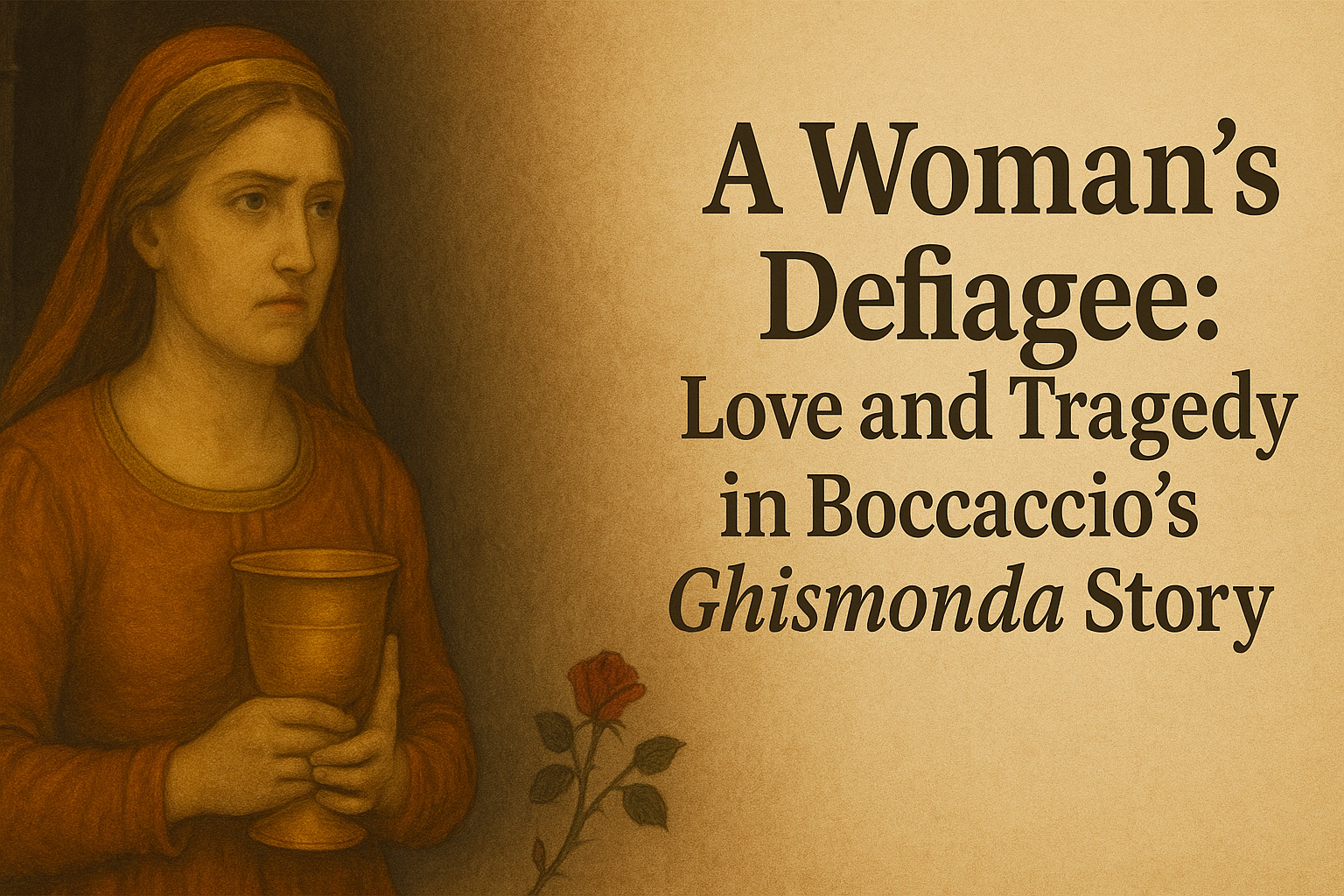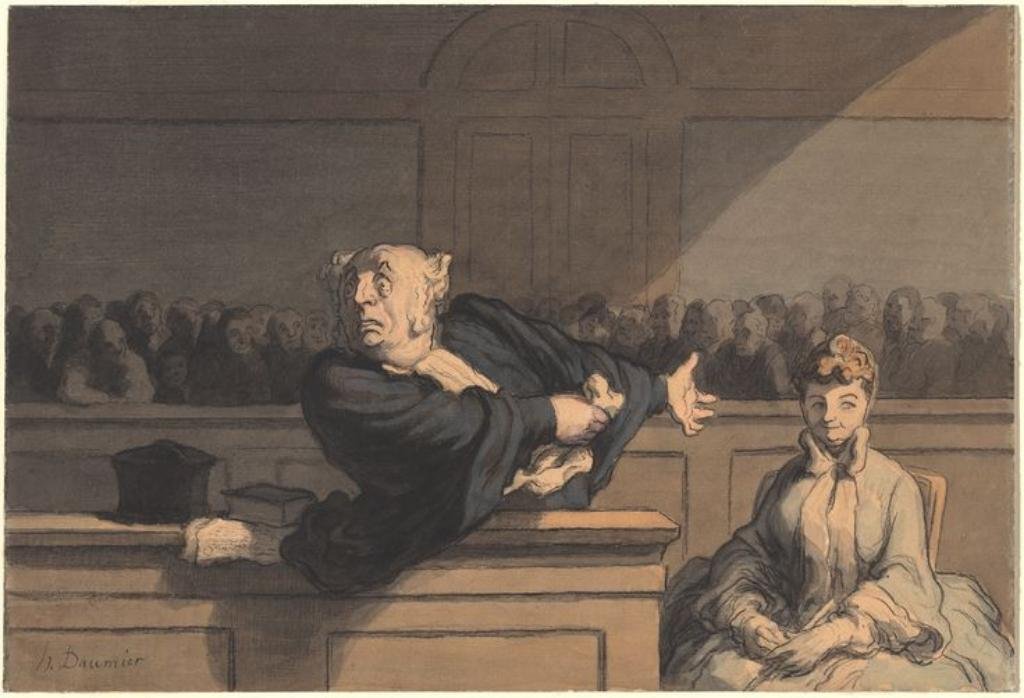Clever Words, Cleverer Women: Female Agency in the Tale of Madonna Filippa

Introduction:
In Day VI, Tale 7 of The Decameron, Giovanni Boccaccio presents the tale of Madonna Filippa, a woman accused of adultery who defends herself with wit and boldness. Rather than focus on moral condemnation, the story celebrates intelligence and challenges societal norms. This review explores how Madonna Filippa’s speech undermines gender expectations and affirms personal agency, showcasing Boccaccio’s progressive lens on female cleverness.
Summary:
Madonna Filippa, a noblewoman of Prato, is caught by her husband with a lover and is brought to court under a city law that sentences unfaithful women to death. At her trial, rather than plead for mercy, Filippa boldly argues that the law is unjust and outdated. She reasons that since she has never denied her husband’s needs and has enough to give, her actions harm no one. Her eloquence persuades the judge and onlookers, leading to the law’s repeal.
Analysis:
Boccaccio crafts this tale with a balance of humor and subversion. The law against female adultery, clearly unequal and archaic, is overturned not by male reformers but by a woman who dares to speak truth to power. Madonna Filippa’s argument relies not just on emotion but on logic and fairness, echoing humanist ideals that would shape later Renaissance thought.
Her defense also turns on economic and gender logic: she equates love and intimacy with abundance, countering the patriarchal view that female sexuality must be confined and controlled. The tale’s comedic tone prevents it from being overly moralizing, allowing Boccaccio to challenge norms without alienating his audience.
Additionally, this story fits within The Decameron’s broader theme of female wit and resilience. Across the hundred tales, women often use speech and strategy to outwit men or escape unjust circumstances. Filippa joins the ranks of women like Griselda and Ghismonda, who push back—either silently or boldly—against rigid roles.
Personal Response:
This tale stood out to me for its boldness. In a text from the 14th century, I did not expect to find such a clear example of a woman publicly challenging the law—and winning. It was refreshing to see Filippa’s intelligence not only recognized but rewarded. I found myself smiling at her courage and the court’s unexpected reasonableness.
Conclusion:
The tale of Madonna Filippa remains relevant because it champions justice, reason, and gender equality through the power of language. In a world still struggling with gender-based double standards, her story reminds us that wit, courage, and truth can shift perspectives—even centuries ago. Boccaccio’s willingness to highlight such a character shows that literature has long been a space to imagine more just societies.







